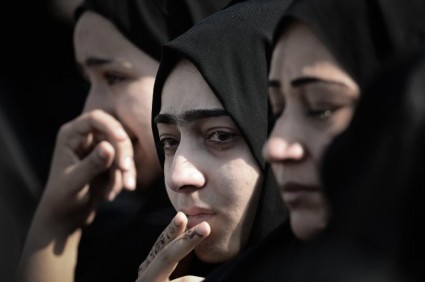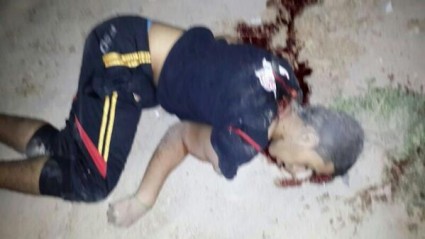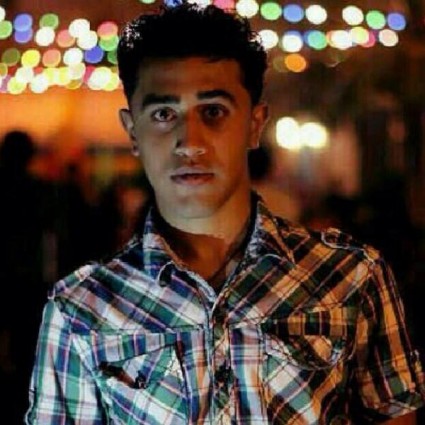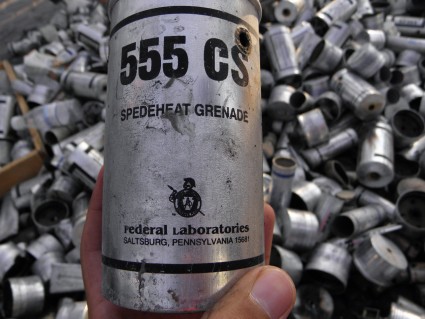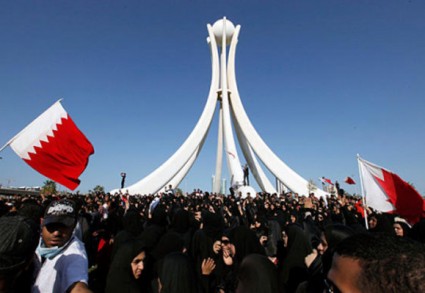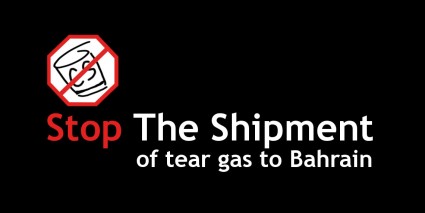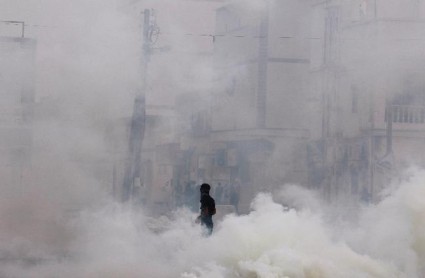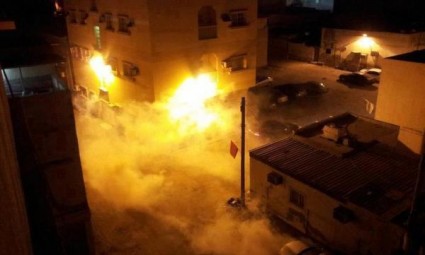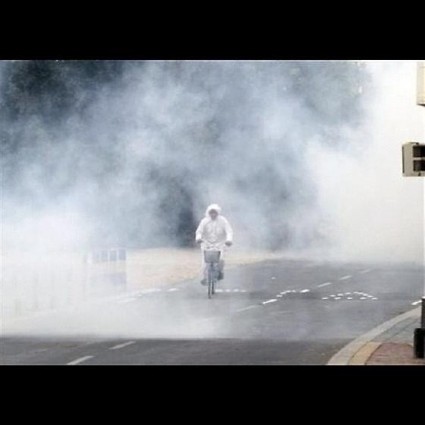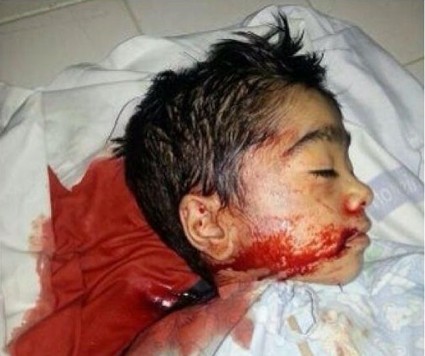Posts from — October 2013
Following another paranoid delusional episode, Saudi Price rants, blames Hezbollah for Syria Crisis
Saudi prince: Lebanon on brink of civil war because of Hezbollah’s role in Syria
24 October, 2013 ⋅ YaLiban
Turki al-Faisal saudi princePrince Turki Al-Faisal Al-Saud, chairman of the King Faisal Center for Research and Islamic Studies and former director-general of the Kingdom’s General Intelligence Directorate has warned that “Lebanon is on the brink of civil war as Hezbollah continues to implement its own agenda without giving any consideration to law and order.”
The party “is willing to risk the foundations on which the entire Lebanese political system was built in order to prevent the collapse of Syrian President Bashar Assad’s regime and impede the work of the Special Tribunal for Lebanon that is probing the assassination of former premier Rafik Hariri,” al-Faisal said during a lecture he delivered at the National Council on U.S.-Arab Relations in Washington, DC on October 22.
“Saudi Arabia believes that the law needs to be imposed in Lebanon and it supports all efforts aimed at putting an end to Hezbollah’s intervention in Syria and bringing its leaders who are suspected of being involved in the Hariri murder to court,” he added.
Asked about the pressure for Turkey to crack down on Islamists on its Syrian border, and what it means for Saudi Arabia’s approach to Syria, Prince Turki said that he understands the goal is “a unified opposition that can represent all of the Syrian community, and that these countries will coordinate with each other on helping that organization defend itself against the onslaught of the Assad killing machine.
Commenting on Iran, Prince Turki said, “It is up to the Iranians to show that their sweet and sensible talk is going to be translated into action, “ adding, “when and if that happens then there is a chance for the situation between, not just the Kingdom and Iran, but also between Iran and the rest of the world to improve.” Al Monitor reported
Prince Turki added that the kingdom has been direct in its dealings with Iran about the issues of tension between the two countries, telling its officials, “You can’t have it both ways. You can’t deal with us and then go and support somebody who wants to overturn us. And this is what they’ve been doing in Lebanon, this is what they’ve been doing in Syria, this is what they’re doing in Bahrain, and what they’re doing in Iraq etc., so this is how we deal with Iran.” The former Saudi ambassador to the US said. …source
October 24, 2013 No Comments
UK to send ‘Enforcers’ to Afghanistan to Retain their Interests in Herion Trade
MI6 Getting Ready to run $100bn Afghan drug (Heroin) industry’
24 October, 2013 – JNN
Washington : A US political commentator says Britain’s foreign intelligence agency is planning to send more spies to Afghanistan to manage a $100-billion drug (Heroin) industry.
Gordon Duff, a senior editor at Veterans Today, made the remarks during an interview with Press TV on Tuesday, two days after The Telegraph revealed in a report that the Secret Intelligence Service (SIS), also known as MI6, appealed for extra staff from other intelligence agencies for Afghanistan after British troops leave in 2014.
Duff said “I think they are going to Afghanistan to help manage the 100-billion-dollar-a year drug industry, moving heroin through Afghanistan, managing the banking for the heroin industry through London banks. I cannot think of anything else they would do there.”
He added “There is no history of terrorism involving Afghanistan and Britain or Afghanistan and the United States that was long disproven, this debunked over a decade ago.”
The United States and its allies invaded Afghanistan on October 7, 2001 as part of Washington’s so-called war on terror. The offensive removed the Taliban from power, but after more than 12 years, the foreign troops have still not been able to establish security in the country.
There are currently over 100,000 foreign troops in Afghanistan. The US has announced plans to pull out all foreign combat troops by the end of 2014.
Opium cultivation in Afghanistan has been on the rise since the US-led war began, with the Central Asian country producing about 90 percent of the world’s opium.
Several reports by the United Nations affirm that Afghan opium is having a devastating impact on the world, killing thousands in consumer countries.
Commenting on the long involvement of US and UK intelligence agencies in drug trade, Duff said, “The CIA, MI6 and other intelligence agencies have been running drug trafficking in the world, certainly, since [the] Vietnam” war.
“The British intelligence services were running world drug trafficking in the 1840s at the time of the Opium Wars,” he said, referring to the Anglo-Chinese Wars (1839-1860) over opium trade between China and Great Britain.
“They have always managed the world’s opium and heroin trafficking. It is something the British Empire is known for. The British began heroin, certainly opium production, in Afghanistan. It is their industry. They have been doing it for well over a hundred years and it is extremely profitable. It funds all of their other activities and there is no reason for them to want to leave it.” …source
October 24, 2013 No Comments
Obama team found scruples, needs manners, tough road ahead for uncivilised American Diplomats
Iranian MPs Condemn US Top Negotiator’s Insulting Remarks
23 October, 2013 – FARS
TEHRAN (FNA)- Members of the Iranian Parliament’s National Security and Foreign Policy Commission lashed out at US Undersecretary of State and top negotiator Wendy Sherman for her insulting remarks against the Iranian people.
Commission Rapporteur Seyed Hossein Naqavi Hosseini said the condemnation was expressed at the Tuesday meeting of the Commission.
“Repetition of such rhetoric by the US officials will lead to the Iranian nation and government’s distrust of the US,” he pointed out.
Wendy Sherman, the State Department’s third-ranking official, told the Senate Foreign Relations Committee that officials were looking for ways Iran could “build confidence” and provide time for diplomacy to work. “We know that deception is part of the DNA” in Iran, she claimed.
In relevant comments on Monday, Iranian Deputy Foreign Minister Seyed Abbas Araqchi also asked the US not to put hurdles on the path of the Iran-powers talks.
October 24, 2013 No Comments
US complicity with terrorists grows untenable, relations with Terror State, Saudi Arabia Fractures
How serious is the ‘rift’ in US-Saudi relations?
By Frank Gardner – BBC – 24 October, 2013
John Kerry and Prince Saud al-Faisal in Jeddah (25 June 2013) The United States and Saudi Arabia have been allies since
The Saudis are upset with Washington. But just how upset? Enough to break off co-operation over Syria, as has been suggested this week?
With conflicting messages coming from senior princes, it is hard to tell.
But the signs are that Washington’s most important strategic Arab partnership is now suffering the biggest strains since it emerged that 15 of the 19 suicide hijackers who had attacked the US on 9/11 were Saudis.
‘Major shift’
First came the shock announcement on 18 October that Saudi Arabia was turning down its two-year non-permanent seat on the UN Security Council in protest at the international body’s apparent inability to resolve either the Syrian or Palestinian situations.
Then on Tuesday it was widely reported that the Saudi intelligence chief, Prince Bandar bin Sultan, had told European diplomats his country would be making “a major shift” in its relations with the US.
Largely in protest over Washington’s reluctance to get involved militarily in Syria, the prince reportedly said Saudi Arabia would be scaling back its co-operation with the CIA over arming and training Syria’s Sunni rebels.
Prince Saud al-Faisal (left) and John Kerry (right) at a meeting of the Friends of Syria in London (22 October 2013) There was no apparent rift between Prince Saud and John Kerry in London
On the same day, another senior Saudi royal, Prince Turki al-Faisal – the former intelligence chief and ex-ambassador to the US and UK – gave a speech in Washington damning President Barack Obama’s policies on Syria as “lamentable”.
He dismissed the US-Russian deal to dispose of Syria’s chemical weapons stockpile as a trick to excuse Mr Obama from having to order military action there.
Yet at the very same time, Saudi Arabia’s Foreign Minister, Prince Saud al-Faisal, was sitting comfortably next to his US counterpart, John Kerry, first in Paris on Friday and then on Tuesday in London as they worked on finding a political solution to the Syrian conflict.
US diplomats say they have received no formal notification of a change in relations and that US-Saudi co-operation is solid and will continue. So what is really going on?
List of complaints
Firstly, Prince Bandar has a reputation of being somewhat at the megaphone end of Saudi communications.
Despite spending 22 years as Riyadh’s ambassador in Washington, he has a penchant for making overly dramatic gestures and statements that in the past have led to his exclusion from the inner circle of Saudi policy making. …more
October 24, 2013 No Comments
Bahrain Dictator King, Appoints Judiciary that could never be construed as Independent
HM King Hamad Affirms Judicial Independence
21 October, 2013 – BNA
Manama-Oct-21(BNA) His Majesty King Hamad bin Isa Al-Khalifa today received at Al-Sakhir Palace newly-appointed Head of the Constitutional Court Shaikh Khalifa bin Rashid bin Abdulla Al-Khalifa and the President of the Court of Cassation and the Supreme Judicial Council Salim bin Mohammed Salim Al-Kawari, who took their oath.
HM the King congratulated them on their appointment and lauded their competence, experience and contribution to the judiciary system in Bahrain, wishing them every success in performing their duties to promote justice, the rule of the law and respect of the constitution.
HM the King affirmed keenness on bolstering the independence of the judiciary for reform steps and modernization to continue unabated and yield further national progress and prosperity.
He credited the judicial system in Bahrain for its long-standing probity, fairness and impartiality in advocating citizens’ issues, preserving their rights and protecting society from any detrimental phenomena.
He emphasized the crucial role of the Constitutional Court, stressing its efforts to ensure the constitutionality of laws and achieve justice.
He also underscored the importance of full cooperation between the three branches of government to achieve the desired goals, in the state of law and constitutional institutions, so as to serve the nation, protect citizens’ rights and maintain security and stability.
HM the King reiterated Bahrain’s firm resolve to continue developing state institutions and support them with national cadres and competences which proved their credentials in all fields.
October 24, 2013 No Comments
Bahrain Courts of Injustice “lie in wait” to imprison another Oppositon leader
Marzouq charged with inciting terrorism, abusing position to promote acts of terror
Bahrain court releases Al Wefaq leader Khalil Marzouq
By Habib Toumi – gulfnews.com – 24 October, 2013
Manama: A Bahrain court on Thursday released Khalil Marzouq, the deputy secretary-general of Al Wefaq National Islamic Society, after adjourning his trial to November 18.
Marzouq is facing charges of “inciting terrorism and promoting acts that constitute crimes of terrorism.”
First Attorney-General Abdul Rahman Al Sayed earlier this month said that the charges levelled after the Public Prosecution completed its investigations of the case also included “using a position within a legally formed political association to call for committing crimes that constitute acts of terrorism punishable under the Community Protection Law.”
Marzouq told the court hearing on Thursday that he rejects violence but stands by his calls for peaceful anti-government protests to force reforms in the country.
He told the three-judge panel that he supports peaceful efforts to force political concessions from the government. But he denied any support for bombings and other attacks, which have been on the rise.
The former lawmaker, who was arrested on September 17 pending the investigation, was also charged with “advocating support for perpetrators of criminal activities and justifying their crimes, calling for the continued planting of explosives and for acts of violence, supporting the criminal activities by persons accused of committing terrorist acts, advocating their crimes as well as pushing for disobeying laws.” …more
October 24, 2013 No Comments
US-Saudi Alliance of Treachory and Deceipt coming undone in Schism of Paranoia?
Paranoid Saudis fear US treachery
24 October, 2013 – PressTV – Finan Cunningham
The Saudis are sulking big time with Washington. This is not just due to a temper-tantrum by the kingdom’s spymaster, Prince Bandar. The entire House of Saud is in ructions over what the rulers perceive as “American treachery”.
When Prince Bandar bin Sultan briefed anonymous Western diplomats at his Jeddah majlis last weekend about a “strategic shift” by Saudi Arabia away from its long-time ally, there was speculation that the Saudi intelligence chief was perhaps speaking out in a personal capacity.
That is unlikely; subsequent furious comments by former ministry of interior chief, Prince Turki al-Faisal, about Washington’s “farcical policies”, and a testy meeting in Paris between US top diplomat John Kerry and Saudi Foreign Minister Prince Saud al-Faisal earlier this week confirm that the kingdom’s inner circle is up in arms with its American patron.
Bandar’s frustration is symptomatic of paranoia in the House of Saud. When he churlishly “threatens” a “strategic shift” it is not actually on the Saudis mulling such a move away from its historic sponsor in Washington, but rather it betrays a distrust among the Saudi rulers that it is the Americans who are the ones stealthily shifting.
But what the Saudi monarchs are confusing in their reactionary mindset is the difference between American tactics and strategy in the Middle East.
Bandar, who was Saudi ambassador to Washington for 22 years, is a senior member of the House of Saud. He was appointed personally by the Saudi king to oversee the funding, arming and logistics of the Saudi contribution to the West’s covert terror war in Syria.
Known as “Bandar Bush” because of strong personal connections to not only the former US president but to the Washington establishment generally, his appointment for running Syria operations was based precisely because of his direct line to US government.
In that regard, Bandar is both the Saudi terror master and the point man for American collusion in the regime change campaign against Syria.
It is thus a safe bet that Bandar’s pique with US policy in the Middle East is shared among the inner circle of Saudi rulers, all the way up to aging King Abdullah.
That means there is a potential fracture in the historic alliance between the two countries – an alliance that goes back to the foundation of Saudi Arabia as a state in 1932.
One former member of the US National Security Council, Michael Doran, told the Daily Telegraph that he had “never seen relations so low” as they are now.
Doran is quoted as saying: “Iran is the number one issue – the only issue for Saudi policy makers.”
Recall that diplomatic cables between Riyadh and Washington leaked in 2010 cited King Abdullah as urging the Americans to “cut off the head of the snake” – meaning Iran.
Tensions between the Saudis and the Americans have been rumbling over the past year. These tensions have expressed Saudi frustration over what they claim as Washington not doing enough to arm the militants fighting in Syria to topple the government of Bashar al-Assad – a close ally of Iran.
The deadly chemical incident near the Syrian capital, Damascus, on 21 August, which implicates the involvement of Saudi intelligence, led by Prince Bandar, can be seen as an attempt by the Saudis to push US President Barack Obama into all-out military attack on Syria.
That gambit failed, from the Saudi viewpoint, for various reasons, including the mobilization of anti-war protests in the West and a timely diplomatic intervention by Russia to secure a chemical weapons decommissioning deal.
Although the Syrian army was not the culprit for the use of chemical weapons, as Western governments and media were claiming, nevertheless President Assad turned diplomatic tables on his enemies by signing up to the decommissioning plan.
The veering away from war plans against Syria by the Obama administration must have been a stinging blow to Prince Bandar and the House of Saud. Saudi Arabia wants to destroy Syria as an independent Arab state for several geopolitical reasons. Chief among these reasons is to curb any move towards democracy in the Middle East. Syria under Assad represents a relatively progressive, pluralist state, and therefore from the Saudi view, must be subverted.
Another reason is the deep pathological hatred from the Wahhabi House of Saud towards Syria’s Shia-affiliated alliance with Iran. Cutting off the head in Syria is Saudi Arabia’s method of trying to decapitate Iran. …more
October 24, 2013 No Comments
Belligerent Saudi Regime kicking their American “Friends” and “Partners” to the Curb?
Saudi-US Row: Prince Bandar bin ‘Sulking’ Tries Old Bribe and Threat Trick Again
Finian Cunningham – 24 October, 2013 – Strategic Culture
Historic allies, the United States and Saudi Arabia, are in the midst of a full-blown row, after the kingdom’s spy chief Prince Bandar bin Sultan threatened that their strategic liaison was on the rocks.
The sulking sultan is no stranger to maverick mood swings. But there is good reason to believe that the senior Saudi is not merely acting alone, and that this is the obscurantist kingdom’s way of expressing strategic frustrations…
Rumbling tensions over various geopolitical issues have now erupted into full public glare when Prince Bandar briefed invited unnamed Western diplomats to his majlis at the Red Sea city of Jeddah last weekend. The purpose was for the Saudi royal to vent his anger over recent «disappointments» caused by Washington’s policies in the Middle East.
«This message is for the US», said Bandar, who was formerly Saudi ambassador in Washington.
According to the Wall Street Journal, the Saudi intelligence chief told diplomats that the kingdom was now seeking other strategic allies, without specifying just who these new partners might be. Whether a full break with Washington will come to pass is moot, but the fact that the more than eight decades of staunch alliance between the US and Saudi Arabia is being dangled in the wind shows that there are deep misgivings and high stakes over recent geopolitical developments.
Arm-twisting tactics by Prince Bandar are nothing new. Earlier this summer the Saudi spymaster tried to cajole Russian President Vladimir Putin to ditch Moscow’s historic alliance with Syria. Bandar, who is also known as «Bandar Bush» owing to close ties to the Washington establishment, attempted to inveigle Putin then with a mixture of bribes and threats.
During the private meeting with the Russian leader Bandar reportedly offered Russia lucrative oil and gas contracts in the Middle East and hinted that he could ensure security for the forthcoming Sochi Winter Olympic Games by exerting his influence on Al-Qaeda-linked terror groups. To his credit, the Russian president gave his Saudi guest short shrift over the unseemly proposal.
The recent weekend confab in Jeddah between Prince Bandar and Western diplomats followed the extraordinary move by Saudi Arabia to reject a non-permanent seat on the UN Security Council. That seat had been much coveted by the Saudis and had been offered after lobbying from Washington. The Saudi snap rejection was therefore a calculated snub to Washington.
Officially, the Saudis endeavored to cloak that decision with high-minded principle, claiming that it was a protest over the Security Council’s inability to defend the rights of Palestinians, create a Middle East free of weapons of mass destruction, and failure to sanction the «Damascus regime» of Bashar al-Assad in Syria.
Nobody is buying that self-righteous, stilted rhetoric. Saudi Arabia has shown little interest in defending the historic rights of the Palestinians under relentless Israeli expansionism, and the kingdom is one of the main purveyors of (non-nuclear) weapons of mass destruction in the Mid-East, if not the entire world.
The real reason for the Saudi chagrin with its American patron is the latter’s failure to launch an all-out military assault on Syria last month, when Russian diplomacy secured a chemical weapons decommissioning deal to avert American aggression. The other major related factor for the Saudi spat with Washington is the latter’s new diplomatic overture to Iran in their ongoing nuclear dispute. …more
October 24, 2013 No Comments
Bahrain Regime moves to silence remaining Oppostion Leadership not yet Imprisoned
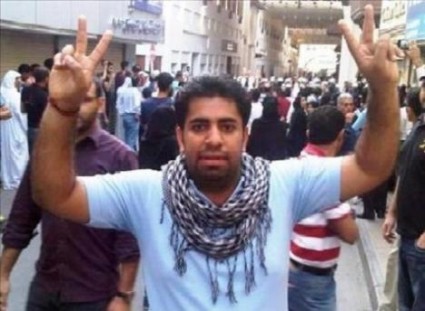
Mohammed Al-Maskati Supporting Pro-democracy
Bahrain: Ongoing campaign against human rights defender, Mohammed Al-Maskati, following visit to United Nations in Geneva
23 October, 2013 – frontline Defenders
On 22 October 2013, Mohammed Al-Maskati was summoned to Al Khamis Police Station for interrogation, which he attended with his lawyer on the morning of 23 October 2013. The Ministry of Interior has accused the human rights defender of “inciting hatred against the regime”. Mohammed Al-Maskati was released from interrogation today after he signed a declaration stating that he will present himself before the public prosecutor at any time. This pressure tactic effectively curtails Mohammed Al-Maskati’s fundamental rights and places him in a vulnerable position while carrying out his human rights activities.
Mohammed Al-Maskati is the founder and current President of the Bahrain Youth Society for Human Rights (BYSHR), an organisation which monitors and documents human rights violations, organises training workshops, and supports regional networking for human rights defenders.
The recent interrogation of Mohammed Al-Maskati related to a speech he made on 8 September 2013 in Jidhafs Town in which he discussed human rights as outlined in international legal mechanisms. In August 2013, Mohammed Al-Maskati visited the Special Rapporteurs affiliated with the UN Office of the High Commissioner for Human Rights and met diplomatic missions in Geneva in coordination with several regional and International Human Rights organisations.
In 2012, Mohammed Al-Maskati also faced repercussions as a result of attending the Human Rights Council (HRC) in Geneva. On 16 October 2012, a few weeks after attending a HRC panel, Al-Masktai was summoned for interrogation at Al-Hoora police station and detained overnight. He was brought before the Public Prosecution office on charges of “rioting and participating in an illegal gathering.” On 17 October 2012, he was released with charges pending. At that time, he also received death threats for supposedly tarnishing “the image of Bahrain in Geneva”, and was the target of a media smear campaign.
The intimidation against Mohammed Al-Maskati relates also to his activities locally. On 19 June 2013, Mohammed Al-Maskati appeared before the Lower Criminal Court on charges of “participation in illegal protests” in relation to his participation in a peaceful demonstration in Manama on 12 October 2012. Further, On 27 November 2007, Mohammed Al-Maskati was summoned to the Fourth Minor Criminal Court on charges of “activating [an] unregistered association before issuing the declaration of registration”.
Front Line Defenders expresses concern at the measures taken by the Bahraini authorities to restrict the practice of Mohammed Al-Maskati’s human rights and fundamental freedoms, and believes these measures to be a result of his legitimate engagement with these international instruments. The Bahraini government was a member of the HRC from 2008 – 2011, and should therefore facilitate the engagement of local human rights defenders rather than curtail their representation or sanction them for their peaceful advocacy. …source
October 23, 2013 No Comments
Demonstrations Breakout on Word of Police Killing of 17 year old Ali Khalil AlSabag
October 22, 2013 No Comments
In Bahrain, “lives cheaper than car tires”
Leading activist: Bahraini lives “cheaper than car tires”
21 October, 2013 – Al Akhbar
An appellate court on Monday reduced to three years the prison sentence of a police officer convicted of killing the first martyr of Bahrain’s 2011 anti-government uprising, as three activists were handed five-year jail terms for burning tires at an “illegal gathering,” judicial sources and a human rights group said.
A Bahraini court originally sentenced the unnamed police officer in January to seven years in jail for fatally shooting 21-year-old Ali Musheime in the back on February 14, 2011 in the village of al-Daih during a “day of rage” rally which ignited a massive, pro-democracy rebellion against the Gulf island’s western-backed ruling family.
A second youth was killed the following day when police opened fire on Musheime’s funeral procession. Amnesty International said that “clear evidence” was present of “police brutality and excessive force” in those killings.
At least 87 more would be killed in the ensuing crackdown on dissidents, according to the Bahrain Center for Human Rights (BCHR).
The appellate court decided to reduce the policeman’s sentence after three fellow officers who witnessed Musheime’s killing claimed their colleague acted in “self-defense,” lawyers said.
The ruling comes as members of BCHR reported over Twitter that a separate court on Monday sentenced three protesters each to five years in prison for burning tires and taking part in an “illegal gathering.”
“Human lives in Bahrain [are] cheaper than car tires,” Maryam al-Khawaja, BCHR’s acting director, wrote on Twitter. …more
October 22, 2013 No Comments
Another Bahrain Police Murder – 17 Year Old, Ali Khalil AlSabag, with shot to head
17 Year Old, Ali Khalil AlSabag has been killed in more senseless Police Violence against Bahraini Citizens. As young Ali’s father went to see his son’s body, police have brutally beat and detained him. Outraged Citizens are marching in throughout Bahrain. 22 October, 2013
October 22, 2013 No Comments
Tear-gas shells replace the Pearl as the symbol of Bahrain
Tear-gas shells replace the Pearl as the symbol of Bahrain
Patrick Cockburn – 20 October, 2013 – PressTV
Two-and-a-half years ago the Bahrain government bulldozed the Pearl Monument, whose tall, graceful pillars held a giant pearl as a symbol of the island kingdom, because it had become the rallying point in the capital, Manama, for pro-democracy protesters. The authorities have never chosen a new symbol to replace the one they destroyed, but, if they do so, they might well like to consider the tear-gas shell or canister as best symbolising Bahrain as it is today. In keeping with this, the government has reportedly signed contracts with South Korean, German and South African firms for 1.6 million tear-gas shells of different calibres, giving it more than one projectile for every Bahraini citizen.
On every side there are signs of increased repression by the Sunni al-Khalifa royal family, which monopolises power in a country where Shia make up 60 per cent of the population. Between 2,400 and 3,000 people are in jail. In recent weeks, 50 Shia, including human-rights activists, were given up to 15 years in prison after the briefest of trials. Yousif al-Nashmi, allegedly tortured when detained by police, died in hospital soon after his release. The public prosecutor’s office said “the deceased was admitted to hospital on September 23 in a critical condition and was diagnosed with Aids”.
Two points have become clear during the 30 months since mass protests began on 14 February 2011: The protesters have not been cowed by persecution and the government has responded by turning Bahrain into a repressive police state. After tentative and unfulfilled promises of dialogue and reconciliation at the end of 2011, the monarchy reverted to reliance on force to crush the opposition. Significantly, the UN Special Rapporteur on Torture, Juan Mendez, has been twice denied entrance to Bahrain, most recently in April. A critic of the regime living in Bahrain, who did not want his name published, said that “over the last year torture has once again become the norm for anybody detained”.
Sensitivity to the degree to which Bahrain has apparently turned into an island of hate, with chasm-like divisions between rulers and ruled and between Sunni and Shia, was illustrated by the over-heated official reaction to President Obama’s reference to Bahrain in his speech to the UN General Assembly on 24 September. He had spoken mildly of “sectarian tensions that continue to surface in places like Iraq, Bahrain and Syria”, but Bahraini ministers queued up to deny that Bahrain had anything in common with Syria and Iraq. Interior Minister Sheikh Rashid bin Abdallah al-Khalifa, whose ministry is said to be importing industrial quantities of tear gas, said Bahrain had “never witnessed at any time sectarian tensions”. The Foreign Minister, Sheikh Khaled bin Ahmed al-Khalifa, claimed that the kingdom had fostered a culture of tolerance between different communities. He added that “what is occurring in Bahrain… is a concerted effort by terrorist extremist groups to target security personnel and expatriates with the intent of spreading fear and division”.
As with many authoritarian regimes over the centuries, the Bahraini government might find it difficult to ease repression even if it wanted to. The fears of the Bahraini Sunni community have been stoked by claims of the existence of terrorist plots inspired by Iran in support of its fellow Shia. But an independent inquiry led by the US-Egyptian legal authority, Cherif Bassiouni, on how Bahrain handled the unrest in 2011, found no evidence of Iranian involvement. Allegations of revolutionary intentions become self-fulfilling: Moderate bloggers and civil-rights activists who have been mistreated and given long sentences tend to be less moderate when they get out of jail.
Why have the al-Khalifas stepped up their efforts to crush the opposition over the summer? One reason is probably sheer frustration that 30 months after the first demonstrations at the Pearl Roundabout, protesters in Shia villages still confront police and hold marches. There is also an exaggerated perception in Bahrain – as in Saudi Arabia and in the other Gulf monarchies – that American power in the Middle East has declined more sharply than in fact it has. Thus the authorities felt free to arrest a prominent opposition leader, Khalil al-Marzouq, the Assistant Secretary General of al-Wefaq, the main opposition party, on 17 September. The opposition had hoped their leaders might enjoy limited protection because their detention would annoy Washington and Western Europe.
October 22, 2013 No Comments
South Korea Embassy in London See Protests Against CS Gas to Bahrain
South Korea rapped for selling arms to Bahrain
19 October, 2013 – PressTV
Protesters outside the South Korean Embassy in London have called on Seoul to stop shipments of tear gas to Bahrain.
The demonstration by the Campaign Against Arms Trade (CAAT) and free Bahrainis was held at South Korea’s diplomatic mission in the British capital on Friday, October 18.
Protesters carrying Bahraini flags and photograph of tear gas injuries, condemned South Korea’s export of riot control equipment to Bahrain’s Al Khalifa regime while it faces accusations of human rights violations.
Some demonstrators were wearing gas masks and others held tear gas canisters. They were also carrying banners reading, “Tear gas kills” and “Stop the shipment.”
Earlier this week, Bahrain Watch, an independent human rights group, published a document dating back to July and allegedly showing Bahrain’s Interior Ministry plans to import 1.6 million tear gas canisters and some 90,000 tear gas grenades.
“I think if you look at the scale and frequency of the use of tear gas in Bahrain, it’s unprecedented anywhere in the world,” said Alaa Shehabi, a founding member of Bahrain Watch.
Since mid-February 2011, thousands of pro-democracy protesters have staged numerous demonstrations in the streets of Bahrain, calling for the Al Khalifa family to relinquish power. The protests have been met with a heavy-handed crackdown.
Physicians for Human Rights say doctors and nurses have been detained, tortured, or disappeared because they have “evidence of atrocities committed by the authorities, security forces, and riot police” in the crackdown on anti-government protesters. …source
October 22, 2013 No Comments
Iran has Economic leverage to Demand Stop S. Korea from Exporting CS Gas to Bahrain
South Korea’s Sep Iranian crude imports double from Aug to 137,467 b/d
Platts – 22 October, 2013
South Korea’s imports of Iranian crude oil in September more than doubled from the previous month to 4.12 million barrels, or 137,467 b/d, compared with 1.97 million barrels in August, data released by state-owned Korea National Oil Corp. showed Tuesday.
The country had no crude imports from Iran in August and September last year in line with US-led sanctions on Iran.
“Crude imports from Iran increased in September compared with the previous month, but total volume imported for the first nine months was down on a yearly basis,” a KNOC official said.
From January to September, South Korea imported 37.28 million barrels of crude from Iran, down 3.8% from 38.77 million barrels in the same period last year.
South Korea was granted a 180-day exemption from US financial sanctions since last year allowing it to keep buying Iranian crude oil as long as it showed an effort to reduce reliance on the supplies.
The country imported 56.15 million barrels of Iranian crude in 2012, down 35.6% from 87.18 million barrels in 2011.
South Korea’s total crude oil imports in September fell 6.4% year on year to 74.75 million barrels, or 2.49 million b/d, compared with 79.85 million barrels in the same month last year.
Meanwhile, South Korea’s oil consumption slipped 4% year on year to 64.59 million barrels, or 2.15 million b/d, in September, from 67.30 million barrels a year earlier.
Oil demand in September was down 7.3% from 69.70 million in August. The country’s refined product exports in September plunged 20.6% year on year to 35.66 million barrels, equivalent to 1.19 million b/d, from 44.93 million barrels a year earlier.
The September exports represented a fall of 3.4% from 36.94 million barrels in August.
South Korea imported 24.71 million barrels of oil products, or 823,667 b/d, in September, down 17.5% from 29.95 million barrels in the same month last year.
September imports were 4% lower from the 25.73 million barrels in August. …source
October 22, 2013 No Comments
Bahrain imports chemical and tear gases twice the population
Bahrain: Imported chemical and tear gases twice the population
By davidswanson – 18 October, 2013 – warisacrime.org
Bahrain’s Ministry of Interior is planning to import 1.6 million tear gas canisters and 90,000 tear gas grenades, according to a leaked document, published Wednesday 17th October by research and advocacy group Bahrain Watch. The document — apparently a tender issued by the Ministry of Interior’s Purchasing Directorate — shows that Bahrain’s security forces are stockpiling massive amounts of tear gas, despite serious concerns of international NGOs and the United Nations Human Rights Council. These groups have called Bahrain’s use of tear gas “unnecessary and indiscriminate”, and “lethal”. This planned new shipment will supply Bahrain with more tear gas canisters than the entire population of the country. Efforts are underway to challenge this massive deal which has confirmed what the opposition had claimed; the Alkalifa are there to kill, maim and torture as many Bahrainis as possible.
The ferocity of repression was laid bare in recent days. Yesterday regime’s security forces attacked peaceful protests in many areas causing serious injuries. The intensification of repressive attacks by those forces are desperate measures to stem the deepening political and humanitarian crisis engulfing the country. At the end of the three-days mourning of last weeks’ martyr, Yousuf Al Nashmi, 31, at Al Musalla Town, the funeral service was attacked by regime’s forces using chemical and tear gases and shotguns against participants. A young man from Karzakkan Town received a direct hit fired by the police using shotguns. He has been admitted to intensive care as his condition remains critical. He suffers broken skull and severe internal bleeding.
Many Bahraini youth have been detained in the past week. Among them is Mohammad Al Nashaba, 21 who was snatched from his house in the early hours of the Eid Day, Tuesday 15th October. Another youth, Jaffar Al Wada’ei, 19, was also snatched from his home and taken to Alkhalifa torture dungeons.
On 14th October, Foreign Policy website has published an article titled “Ignoring Bahrain’s iron fist”. It was written by Sarah Margon, acting Washington director at Human Rights Watch and Mary Laurie, a fellow in the Human Rights Watch Washington office. It said: “For two years, as the United States has condemned massive abuses of protesters throughout the Middle East, it has largely turned a blind eye to equally horrific treatment in Bahrain, a small but significant ally. As the situation in Manama shows no sign of abating, the United States needs to step up its game — before it’s too late.” After detailing America’s stands on Bahrain in the past two years including what President Obama said in his address at the UN recently, it concluded: “If the United States is trying to gain leverage with Bahrain’s rulers by limiting its criticism, there is no evidence that this app roach is making a difference. In fact, it appears to be making a bad situation worse.”
Although the regime’s forces are committing atrocious crimes against Bahrainis every day, only a portion of those crimes are documented. The link below shows how those forces are waging war against Bahraini natives. The crime which has been recorded took place at Al Ekr Town. Those forces prefer to commit their crimes on the secluded roofs of houses they raid without legal permission. A similar video was broadcast about a similar crime at Alaker Town last year.
Meanwhile, the protests have continued in most parts of the country under different mottos. The regime’s failure to contain the situation or defeat the Revolution has taken the struggle steps ahead and created more pressure on Alkhalifa’s allies especially Washington. The protest on Tuesday to mark the end of the commemoration service of Martyr Yousuf Al Nashmi, has proven beyond doubt that the people are clear in their minds about what they want, and possess power and carriage to counter the regime’s mouthpieces. …source
October 22, 2013 No Comments
STOP THE SHIPMENT – NO MORE CS GAS TO BAHRAIN
Bahrain’s Ministry of Interior is planning to import 1.6 million tear gas canisters and 90,000 tear gas grenades, according to a leaked document, published today by research and advocacy group Bahrain Watch. The document — apparently a tender issued by the Ministry of Interior’s Purchasing Directorate — shows that Bahrain’s security forces are stockpiling massive amounts of tear gas, despite serious concerns of international NGOs and the United Nations Human Rights Council. These groups have called Bahrain’s use of tear gas “unnecessary and indiscriminate”, and “lethal”. This planned new shipment will supply Bahrain with more tear gas canisters than the entire population of the country. …more
October 22, 2013 No Comments
Stop the Killing and Abuse with CS Gas by US “friends and partners” in Bahrain
Activists urge Korea to cancel massive tear gas shipment to Bahrain
18 October, 2013 – Al Akhbar
Rights activists have launched a campaign urging South Korea to cancel an imminent shipment of over 1.6 million tear gas canisters allegedly ordered by Bahraini authorities battling a two-and-a-half-year-long rebellion.
An unverified document dated June 16, 2013 obtained this week by the monitoring group Bahrain Watch shows that Bahrain’s Ministry of Interior has requested an order of 1.6 million tear gas shells, 145,000 stun and flash grenades, and 90,000 tear gas grenades.
The massive figure startled observers who pointed out that the quantity was larger than the entire 1.2 million population of Bahrain, half of which is comprised of foreigners and migrant workers not involved in the largely-peaceful, anti-government movement.
“I think if you look at the scale and frequency of the use of tear gas in Bahrain, it’s unprecedented anywhere in the world,” Alaa Shehabi, a founding member of Bahrain Watch which is behind the Stop the Shipment campaign, told Al-Akhbar.
“They (police) are using hundreds of rounds on a nightly basis, … so they need this amount to sustain the constant state of repression.”
Shehabi added that her group has received information that the order is expected to be delivered before the end of this month.
“We’ve had, in the last 24 hours since we launched the campaign, 11,000 e-mails sent to Korean agencies involved in shipment,” Shehabi said.
Heeding activists’ calls, the Korean Confederation of Trade Unions have condemned the tear gas deal and urged authorities to prevent the shipment, citing humanitarian concerns.
The procurement tender does not specify the supplier of the weapons, but activists say that the bulk of the tear gas that reaches the tiny Gulf island is manufactured by two South Korean companies and a joint German-South African one.
Rheinmetall Denel Munition, the German-South African company, and South Korea’s Defense Acquisition Program Administration both declined to comment on the alleged deal.
Police have killed at least 89 people since the anti-government uprising erupted in February 2011, according to the Bahrain Center for Human Rights. Of those victims, 39 died from tear-gas related attacks including suffocation and direct shots to the head, records from Physicians for Human Rights show.
Authorities have so far been unable to quell the nearly daily demonstrations that persist across Bahraini villages against the widely-detested, US-backed monarchy. Dozens of human rights activists, doctors and political opponents have been jailed since the start of the uprising.
Over the past month alone, Bahrain sentenced 104 protest leaders to prison terms of up to 15 years on “terrorism” related charges. …source
October 22, 2013 No Comments
Bahrain’s Widespread Abuse includes use of Birdshot Against Village Protesters
October 22, 2013 No Comments
Night raids, torture, rampant gassing, sham trials a daily reality in Bahrain
October 22, 2013 No Comments
Clouds of Death – Story of Chemical Gassing and Collective Punishment in Bahrain
THE UNITED STATES ONGOING SUPPORT FOR THE BLOODY BAHRAIN REGIME AND FAILURE TO ACT AGAINST ITS ONGOING SYSTEMATIC HUMAN RIGHTS ABUSE IS NOT ONLY SHAMEFUL HYPOCRISY, IT IS CRIMINAL CONSPIRACY.
March, 2013
Recent events in Bahrain reveal an abuse of CS Gas being used at levels beyond any rational means of crowd or riot control”. The Regime’s deliberate, lethal misuse and abuse of CS GAS is Criminal and Genocidal toward the Majority Shia Population in Bahrain. The Bahrain MOI is responsible for directing the abuse of CS Gas at levels designed to inflict death and long term injury to the individual and genetic health of innocent people who inhabit Bahrain’s Villages. Meanwhile the United States’ and United Kingdom’s only Action Against their Brutal ALLY is an occasional, vain utterance about Regime Abuses. Today they again stand silent while their Ally, South Korea exports more CS Gas canister to Bahrain than there are Citizens to Poison.
MR. CAMERON AND MR. OBAMA, WE HAVE GROWN TIED OF YOUR LIES AND SUPPORT FOR THE AL KHALIFA REGIME IN BAHRAIN. YOUR CONTINUED SILENCE AND YOUR FAILURE TO ACT WITH GENUINE MEASURE TO STOP THE HUMAN CRUELTY FROM THE AL KHALIFA REGIME IS COMPLICITY.
October 22, 2013 No Comments
Bahrain Regime Desperately needs a new Approach to “Reform Dialogue”
October 22, 2013 No Comments
On the Occasion of the Assassination of 20 Year Old, Hussein Mahdi Habib
Opposition Activist Martyred by Regime Forces in Bahrain
20 October, 2013 – Al Manar
The regime forces in Bahrain killed a new opposition activist as he was demanding freedom and political as well as social reform.
Hussein Mahdi Habib, 20, hails from Sitra Island, northeastern Bahrain.
Habib, who had been already sentenced in absentia to 15 years, was shot dead by the regime forces.
People have taken to the streets in the Bahrain’s northeastern island to stage a demonstration against the al-Khalifa regime.
The protesters shouted anti-regime slogans and called for the freedom of political prisoners in the tiny Gulf country.Sheikh Salman
The Secretary General of the Bahraini prominent opposition group, al-Wefaq, Sheikh Salman, slammed the regime for its consistence rejection to start a serious national dialogue.
“Manama authorities believe in stifling the Bahrainis.”
Sheikh Salman also called on wide participation in the humanitarian campaign to prevent importing the tear gas bombs from North Korea.
Arab and Western newspapers mentioned that Bahrain marks the highest international rates of using such bombs against the Bahrainis who seek democracy and freedom in their country. …source
October 22, 2013 No Comments
The Unabated, Dispicable System of Human Rigths Abuse in Saudi Arabia
Saudi Arabia- International spotlight shows broken human rights promises as oppression and violations continue
22 October, 2013 – Gulf Center for Human Rights
Saudi Arabia has failed to deliver on promises it made to the international community. In 2009 Saudi Arabia pledged to implement recommendations made at its Universal Periodic Review (UPR) in relation to its human rights record. At its second UPR, which took place in Geneva on 21 October 2013, Saudi Arabia failed to show that it had implemented or taken steps to implement the recommendations. On the contrary a crackdown continues across the country against those demanding that their human rights be respected.
Citizens continue to be deprived of their basic human rights and human rights defenders and their families continue to be targeted as a result of their human rights work. Many face a myriad of violations including arbitrary arrest and detention, torture, travel bans, judicial harassment and unfair trials. Alleged counter-terrorism measures are being increasingly used as a tool to arrest human rights defenders. Furthermore, civil society has been faced with a renewed crackdown over the past two years and impunity for human rights violations is increasing. For further information see Gulf Centre for Human Rights (GCHR) appeals on Saudi Arabia. (http://gc4hr.org/news/index/country/3)
Women continue to be discriminated against in Saudi Arabia. The GCHR issued an appeal on 17 October 2013, as authorities are targeting those campaigning for the right of women to drive. The GCHR fully supports the “26 October Campaign”, which designates the 26 October as a day for women to drive. (http://gc4hr.org/news/view/504)
Failure to implement the UPR recommendations marks a pattern of behaviour by Saudi Arabia, which has shown a persistent lack of cooperation and respect for UN mechanisms. On 18 October 2013 it declined a non-permanent seat on the UN Security Council on the basis that the body had failed in its duties to act in conflicts including that taking place in Syria. This move has been viewed as ironic by human rights organisations. Furthermore Saudi Arabia has yet to sign and ratify core UN human rights treaties and agreements such as the International Covenant on Civil and Political Rights, the International Covenant on Economic, Social, and Cultural Rights, the International Convention on the Elimination of All Forms of Racial Discrimination, and the Convention on the Protection of the Rights of All Migrant Workers and Members of Their Families. It has also refused to allow visits by seven UN Special Rapporteurs since 2009.
In 2013, many prominent human rights defenders have been convicted on broad charges following unfair trials. In March, two founders of the prominent Saudi Civil and Political Rights Organisation (ACPRA), Abdullah Al-Hamid and Mohammed Al-Qahtani, were sentenced to 10 and 11 years respectively due to posts they made on Twitter promoting human rights and the organisation was dissolved. They were found guilty of “breaking allegiance and disobeying the ruler”, “undermining unity”, “questioning the integrity of officials”, “seeking to disrupt security” and “inciting disorder by calling for demonstrations”. Others convicted on such broad charges this year include Mikhlif Al-Shammari, Wajeha Al-Huwaider, Fouzia Al-Oyuni, Raef Badawi, Mohammed Al -Bajady and Sulaiman Al-Rashudi. Saudi courts are currently trying others, including the human rights lawyer Waleed Abu al-Khair, on similar charges while others continue to face harassment and travel bans. …more
October 22, 2013 No Comments
Weaponizing Tear Gas: Bahrain’s Unprecedented Use of Toxic Chemical Agents Against Civilians
October 18, 2013 No Comments

